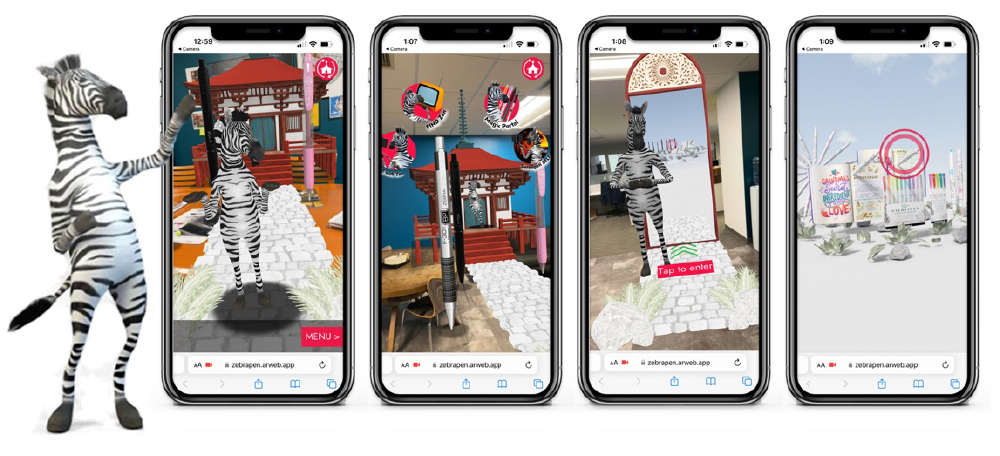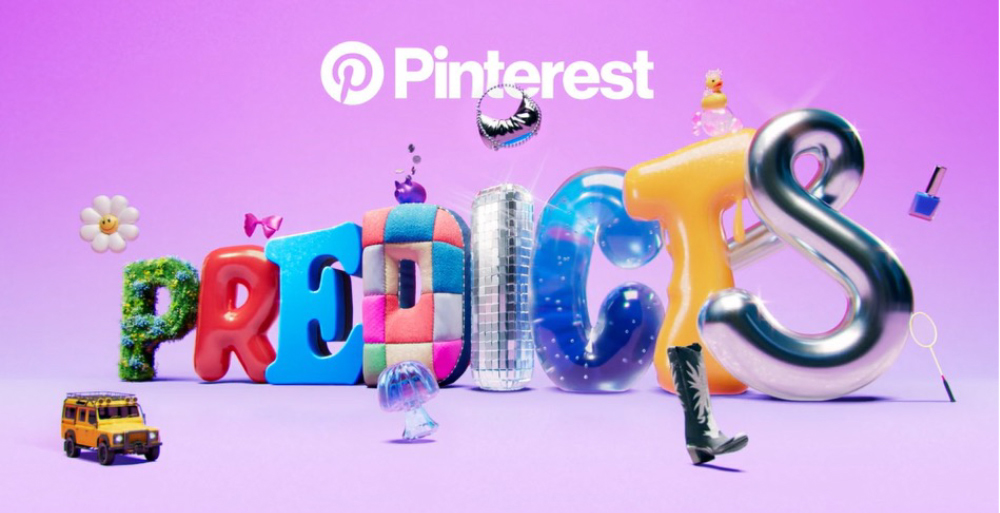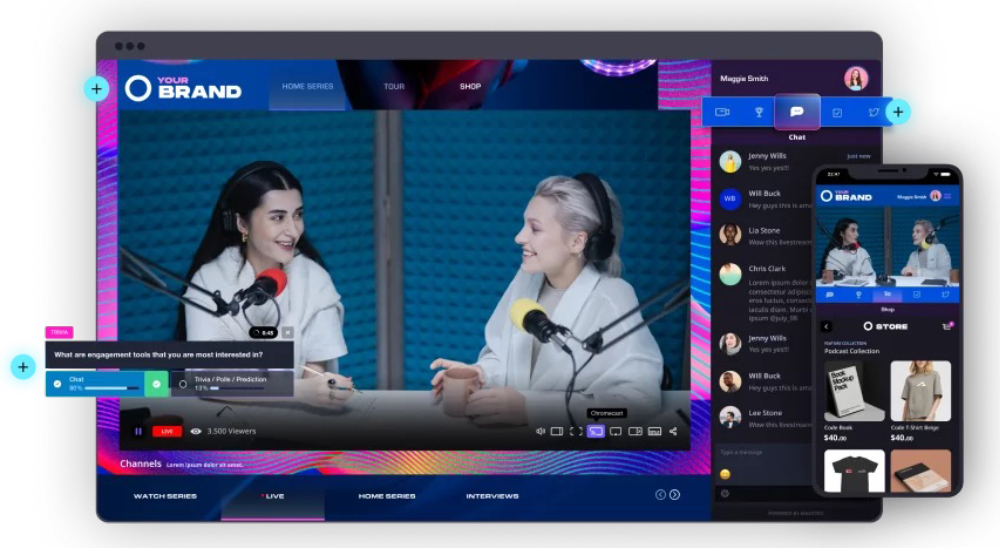As we reflect back on 2023, it becomes readily apparent that we endured yet another year of fast-paced, amazing transformations across the social media landscape, including:
- Twitter was officially rebranded as X
- TikTok drove Gen Xers and proved it was not only for kids
- Pinterest’s strategic focus on visual discovery and inspiration resonated with users, driving increased global adoption
- threads gained 100 million users in less than a week
- Meta announced new versions of both Facebook and Instagram that would allow users to pay to avoid advertisements.
Predicting with precision what the face of social media will look like in 2024 is difficult; however, I can suggest some speculative trends or possibilities which could potentially influence the landscape and might be considered by brands as they plan their social media strategy for the coming year. Before we get into specific details on trends for 2024, let us first start with a look at the big picture and how to best leverage forthcoming changes to better connect with shoppers and elevate brand performance.
The Internal Change of Ownership and Shift to Partnership
With the continuation of rapid-fire change being anticipated across all social media channels for 2024, brands will need to become increasingly nimble, pro-active, and responsive to stay current and meet consumers’ rising expectations. This is especially true for Social Media Managers, who have long operated as the “Swiss Army Knife” of brand marketing teams, managing multiple social media tasks in addition to often handling cross-functional roles like analytics, influencer management, media planning, copy development, platform management, user generated content tracking, PR and other tasks.
Managing every aspect of a brand’s social media strategy has increasingly become a job too large for one person to effectively and efficiently deliver, to be the sole “doer” – especially since the social media universe has scaled significantly across platforms, features and skills required. It’s about far more than just posting content on a social page and measuring followers, likes and CTRs.
A social media strategy involves meticulously crafting and implementing a comprehensive plan to leverage various platforms, engage target audiences, and amplify brand presence. This encompasses defining clear objectives, identifying key performance indicators (KPIs), curating compelling content, and employing analytics to measure success to ensure a dynamic and impactful online presence that aligns seamlessly with the brand’s overall marketing goals.
Social media serves as a powerful tool for brand visibility and engagement, providing an unparalleled platform for companies to connect directly with their target audience. By fostering a dynamic online presence, brands can cultivate a sense of authenticity and transparency, thereby building trust and loyalty among consumers. Furthermore, social media facilitates real-time feedback through listening and learning enabling brands to adapt swiftly to market trends and consumer preferences, ultimately contributing to a more agile and responsive brand image.
That said, brands should consider seeking out the support of a marketing agency that can help with prioritizing, strategizing, and developing the best path forward for their brand’s social media efforts to create level up experiences for their customers, forge stronger connections and generate brand growth.
What’s in store for 2024?
Getting back to 2024 trends…clearly more change is on the horizon, so let’s take a look at what’s expected to unfold:
- Augmented Reality Integration: Social media platforms will continue to adopt more advanced augmented reality features, delivering exceptional user experiences and content in new and immersive ways to help make brands come more to life, their messages more memorable and their customer encounters more rewarding on both ends.

- Increased Regulation: Governments worldwide are seeking and have begun to implement stricter regulations on social media platforms to address concerns related to privacy, AI-featured privacy safeguards, misinformation, and user safety. Meta has already responded by introducing Purple Llama, an umbrella project featuring open trust and safety tools and evaluations to help brands build responsibly with AI models. As part of this, Purple Llama will include tools and evaluations for cybersecurity and input/output safeguards. Regardless of how fast or deep the regulation may flow, it is critical that brands are informed of and fully understand the changing landscape of regulation to ensure compliance in effort to responsibly protect their customers and expand their success within the established set of standards.
- Facebook Broadcast Channels: Broadcast channels will increase on both Facebook and Messenger as yet another immersive means for tapping into viewers’ values and interests. This tool represents a way to engage more deeply with the brand followers, allowing for them to join broadcast channels as a means of keeping up to date on the latest from their favorite pages and to dive deeper into the topics that matter most to them. As such, this offers a new realm of opportunity for brands when introducing new products or sharing information about cause-based commitment such as sustainability, allowing the brand’s emotional, lifestyle and functional value to shine through.
- Pinterest: The social media channel known for “finding inspiration and ideas” will gain even more momentum through increased membership of over 465 million monthly active users (MAU) across the globe. Today, Pinterest is the 4th most popular social media site in the US, is where 85% of weekly ‘Pinners’ made purchases and the place where more than one-third of visitors are Millennials. Based on the numbers alone, this is clearly a platform where many brands will want to be seen, provided it aligns with their target shoppers.

- AI-Driven Content Moderation: Improved artificial intelligence algorithms will be employed for more effective content moderation, combating issues such as hate speech and misinformation.
- Niche Community Platforms: These specialized, niche social media platforms catering to specific interests or demographics are expected to gain in popularity, challenging the dominance of larger, general platforms. The roots of traditional social, like old fan message boards, are coming back in the form of closed communities. When brands take the time to build or participate in these closed communities, they can gain a comprehensive understanding of their customers’ needs and use these insights to help feed their business strategy. As a result, leveraging niche platforms like Reddit, Discord or WhatsApp, could possibly prove a useful information grab to learn more about high value customer behavior.
- Live Streaming Evolution: Live streaming features on social media are expected to evolve to incorporate new technologies, providing more interactive and engaging experiences for users with brands. Experimenting with these new resources through “test and learn” approaches will help brands better understand how they can level up the value of their social media program to create more rewarding encounters for their customers.

- Environmental and Social Responsibility: Users and platforms are expected to become more focused on environmental and social responsibility, with social media companies taking steps to address concerns related to their impact on society and the environment. This affords brands that embrace and are committed to bringing forth the best on the social and/or ecological front a stronger voice against the backdrop of traditional commercialism.
- Audio-First Content: The popularity of audio content, including podcasts and voice-based social interactions, are anticipated to increase, leading to new features and platforms centered around audio experiences. Brands seeking to get in on this emerging platform will be best served to identify those affiliates/influencers/champions delivering audio content that are best align with their value to help better resonate and elevate the authenticity of their message.
- Metaverse and Virtual Reality: Integration will continue to expand and grow in popularity on social media platforms, allowing users to connect and share experiences in virtual spaces, creating a more immersive social media environment.

With so many new changes expected, and no doubt, in short order, the importance of having an agency partner that embraces your vision and is skilled to support the strategy, management and impact of brand social media is greater than ever.
As we gaze into the digital horizon of 2024, the landscape of social media is poised for dynamic shifts that will undoubtedly impact the advertising industry. From the rise of immersive technologies like augmented reality to the growing importance of socially responsible content, the trends foreseen for the coming year present both challenges and opportunities for brands. Staying ahead requires adaptability, creativity, and a keen understanding of the evolving applications. As social media continues to be a driving force in shaping consumer perceptions, successful brands will be those that embrace innovation, leverage emerging platforms, and craft compelling narratives that resonate with their ever-evolving digital audience.
SOURCES:
https://www.forbes.com/sites/siladityaray/2023/07/10/with-100-million-users-in-five-days-threads-is-the-fastest-growing-app-in-history/
https://influencermarketinghub.com/pinterest-stats/
https://www.statista.com/statistics/265773/market-share-of-the-most-popular-social-media-websites-in-the-us/

